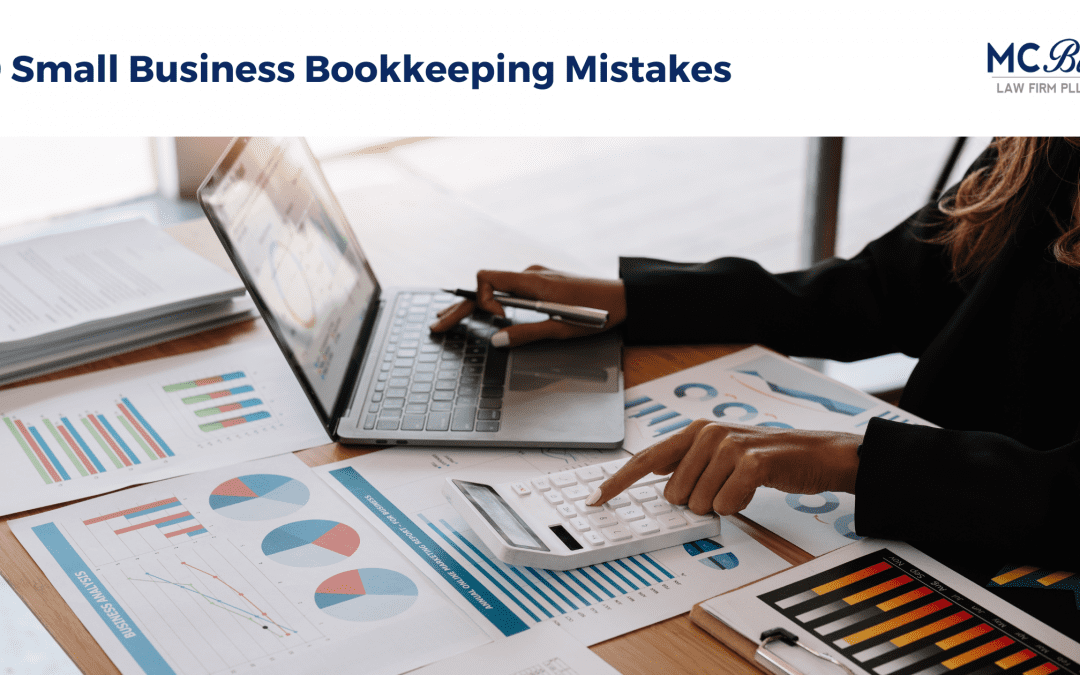When was the last time you reconciled your accounts? For the prosperity of your business, financial order is paramount. Even for small operations, bookkeeping is a non-negotiable aspect that demands attention. While not the most thrilling task, it holds immense importance in ensuring accuracy and preventing costly errors. As a responsible party for these tasks, it’s crucial to acknowledge that you may not possess the same accounting expertise as larger enterprises with the luxury of hiring specialized professionals.
It becomes imperative to educate yourself on common bookkeeping mistakes prevalent among small business owners. By understanding and proactively avoiding these errors, you can proficiently manage your finances, positioning your business for lasting success.
1. Neglecting Low-Value Receipts
One frequently encountered bookkeeping pitfall is disregarding low-value receipts. While the IRS may not explicitly demand these receipts, they can prove beneficial in the event of an audit. Small business owners should either maintain physical copies in a secure location or digitize receipts using preferred digital accounting software.
2. Overlooking Reimbursable Expenses
Failure to track reimbursable expenses can lead to significant consequences, causing your company to miss out on tax deductions and potentially pay more in taxes. Utilize expense-tracking software to promptly record and track expenses as they accrue.
3. Employee Classification Errors
Identifying and correctly classifying employees, consultants, contractors, or freelancers can be confusing but is crucial. Misclassification may result in severe consequences, including lawsuits and tax penalties.
4. Communication Gaps
Effective bookkeeping relies on consistent communication within the small business. Inadequate communication can lead to confusion and errors. Clear communication ensures that all financial transactions, such as additional purchases or bonuses, are accurately recorded.
5. Neglecting Reconciliations
Reconciling the company’s books with bank statements is vital for understanding financial health and identifying errors before they escalate. Skipping, incorrectly completing, or irregularly performing reconciliations is a common bookkeeping mistake.
6. Insufficient Physical Document Storage
While digital record-keeping enhances daily operations, having physical backups for financial documents is crucial during audits. Store organized physical copies for a minimum of seven years to meet tax authorities’ expectations.
7. Sales Tax Collection Challenges
Determining and deducting sales tax can pose challenges for small businesses. Forgetting to deduct the tax from sales can result in larger tax bills. Stay informed about sales tax regulations, especially for online transactions, to remain compliant.
8. Inadequate Petty Cash Management
Establishing clear petty cash policies, assigning one responsible person, and periodically reviewing transactions are essential for proper money management. This minimizes the risk of theft, fraud, and abuse.
9. Expense Categorization Errors
Clear accounts depend on accurate expense categorization. Placing expenses in the wrong category or using identical categories can lead to confusion. Simplify bookkeeping by limiting the number of categories used.
10. Reluctance to Seek Assistance
Wearing multiple hats as a small business owner is common, but attempting to handle all aspects, including bookkeeping, independently can be counterproductive. Seek assistance from colleagues, friends, or consider outsourcing to an experienced professional.
Get Professional Support from Your Exclusive Legacy Planning Session Expert
As a small business owner, you have numerous responsibilities. Our role as your Family Wealth and Estate Attorney is to provide support and expertise in family business planning. We aim to safeguard your legal and financial rights, allowing you to run your business with confidence.
For additional guidance on establishing robust Financial, Legal, Insurance, and tax systems, don’t hesitate to reach out. Our experience and expertise ensure you receive the legal counsel necessary to protect your business and achieve your goals.
This article is presented by Michelle Bell, an expert in estate planning and business succession services. Our office provides comprehensive legal support for businesses, assisting you in making informed decisions throughout your entrepreneurial journey and in planning for future contingencies. We also offer a specialized session where we review your business’s legal structures. To arrange this consultation, please click the following link: https://calendly.com/mcblawpllc/30min.
The information in this article is intended purely for educational and informational use and should not be considered as advice on ERISA, tax, legal, or investment matters. For advice specifically tailored to your unique situation, such advice should be sought independently from this educational content.

